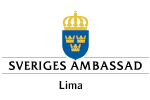 Pope Francis’ visit to Mexico last week took an unexpected turn when he singled out Donald Trump, telling reporters that there are people in the U.S. who have no right to be there and anybody who wants to build borders “is not Christian.” The public spat over immigration made news, with Trump saying the U.S. has the right to close its borders and refuse documentation of the 11 million illegal immigrants living in the U.S. To this effect, as Trump said, the Pope just “doesn’t understand” America’s problems.
Pope Francis’ visit to Mexico last week took an unexpected turn when he singled out Donald Trump, telling reporters that there are people in the U.S. who have no right to be there and anybody who wants to build borders “is not Christian.” The public spat over immigration made news, with Trump saying the U.S. has the right to close its borders and refuse documentation of the 11 million illegal immigrants living in the U.S. To this effect, as Trump said, the Pope just “doesn’t understand” America’s problems.
Trump may have a point. For the 95% of the world who do not live in America, it is hard to understand the country. And the opposite is true, too.
With this in mind, the Pope — Christianity’s most celebrated embodiment of compassion — should respond to Trump with 5 thoughts:
First, to show this not an anti-American prejudice, the Pope should take the cause of all people who do not have the documents required to live, work and make contracts be in a particular place. The issue of is not just an American problem, nor is it only about immigrants. It’s much bigger than that, as 5 billion of the world’s 7 billion people don´t have the documents to live in a particular place. To be precise, they don’t have the legal property rights required to reside, own assets or do business in their own or any other country. That’s 5 billion without any enforceable guarantee that they will not be expropriated or environmentally contaminated by powerful business, government, terrorists or criminals. That also means they will struggle to have access to credit or the ability to raise capital since borrowers typically need to pledge some kind of property in exchange.
Only 1 billion people living in the West, Japan, Singapore and the like, and another billion in the westernized areas of developing and former Soviet nations have the documents to protect and leverage their rights.
Moreover, so that his war in favor of the down-trodden should not be confused with anti-Americanism the Pope should challenge the Mexican government to improve property rights for owners of the country’s 10 million urban homes, 137 million hectares and 6 million businesses. Most Latin American countries have yet to document the property rights of their own people.
....
Read the complete article on the website of Fortune


